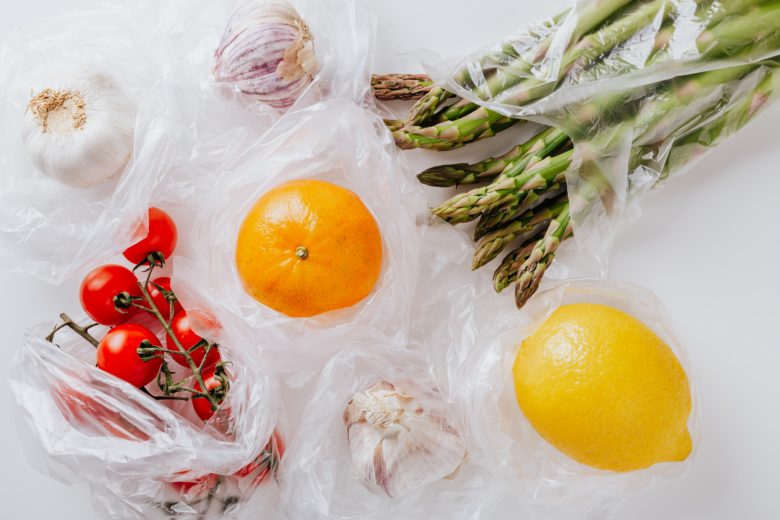Plastic bag ban: is bio-plastic (not) an alternative?

A final ban on plastic bags has been under discussion for years, and with the start of 2022, it will actually first take place in Germany. Since January 1st, it is no longer allowed to offer plastic shopping bags in German shops. This affects all models with a wall thickness of 15 to 50 micrometers. So far, this was the standard that was distributed for shopping purposes. On the other hand, thin plastic carrier bags of unpacked fruit are still allowed. According to data from the German Federal Statistical Office (Destatis), Germans use around 3.65 billion pieces (as of 2019) of these very thin plastic carrier bags per year. There are already numerous alternatives.
New opportunities and issues after the end of single-use plastics in the EU
Organic bags as an alternative
In Austria, where such a plastic bag ban has been in force since January 2020, the Verbund kompostbaren Produkte is now drawing attention to an alternative in a press release. According to the announcement, thin plastic bags made from certified compostable bioplastics could decisively strengthen the circular economy in the fruit and vegetable departments in retail. This would be particularly important if the bags are used several times.
“The advantage of the organic bags – which are exempt from the strict ban on one-way carrier bags – is that in Austria we can dispose of them together with the organic waste in the organic waste bin. The consumer can easily recognize the certified compostability by the seedling symbol. The organic bags consist mainly of renewable raw materials, as the legislature – analogous to Germany – demands of us manufacturers,” says Gerhard Margreiter, managing director of Naturabiomat and member of the association.
In addition to its advantages in terms of disposal, the association shares that the compostable bags not only enable uncomplicated transport but also lead to a better shelf life when storing food in them.
Takeaway packaging accounts for 44% of all plastic waste in the ocean
Bio-plastic composting time is way too long
The compostable alternatives, however, are not undisputed. Details of how long the “organic sack” needs to be completely broken down are not always available in detail. On its partner site Biosackerl, the Compostable Products Association refers to the definition of the term: “Compostability is the property of a material to be completely biodegradable under composting conditions within a limited period of time (usually 6 months).”
Half a year is far too long for regular composting plants. The bio-waste of the Viennese population, for example, has to be ready for collection as nutrient-rich compost after only eight to ten weeks at the Lobau composting plant , according to the City of Vienna . And even if the bacteria had more time, little would be gained. Because most bio-plastics do not break down into valuable humus – only into water and CO2.
Bulgarian zero waste startup DiFOLD grabs the German Sustainability Award Design
The Federal Environment Agency does not recommend compostable plastic
The German Federal Environment Agency (UBA) has already expressed its criticism of compostable plastic. On its website, the office writes that comparative life cycle assessments show that bio-based plastics are not more sustainable than conventional plastics. In addition, the UBA packaging expert Gerhard Kotschik even recommends not to throw the organic bags on the compost heap at home. According to him, many biodegradable plastics only break down during composting under the defined conditions of industrial composting plants. However, different humidity and temperature conditions would prevail in the compost heap at home, which means that the bags do not decompose there or only decompose with a significantly longer disintegration time.
If consumers still want to use the biodegradable collection bags, they can use the seedling symbol to determine whether the bag is approved for household organic waste collection. However, the local separate collection regulations should also be observed before using these bags. Because many cities and districts in Germany have banned this, for example out of technical necessity. In Austria, too, municipalities and cities regulate the use of compostable packaging themselves. The City of Vienna , for example, advises disposing of them in the residual waste bin, but also allows bags to be placed in the organic waste bin. The federal state of Lower Austria also allows the bags, but still recommends reusable collection aids.
Romanian startup R-CREATE offers returnable packaging solution for online orders
Reusable alternatives have an advantage
Instead of bio-plastic, more and more paper bags are being given out in supermarkets. At first glance, these look much more sustainable, almost green. However, according to the German Federal Environment Agency, even disposable paper bags do not do any better in life cycle assessments than conventional plastic carrier bags. The best for the environment is therefore still a reusable shopping bag, which is used for as long as possible. It can be the good old jute bag made of fabric, a net on plastic, a basket, or a classic backpack. Anything that is used more often is really environmentally friendly. All environmentally conscious consumers should do without bags made of bioplastics, paper or even plastic: inside.
Study: The number of carelessly dumped masks has increased enormously




























